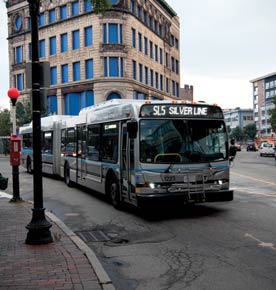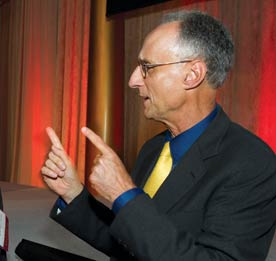In November 2009, the board of Citizens for Modern Transit (CMT), a St. Louis nonprofit that advocates for public transit, met at the BJC conference center, a gleaming new office/retail development next to a light rail stop. At the time, St. Louis public transit faced a crisis. Without additional revenue, bus routes would have to be cut by 60 percent the following spring, hitting communities of color especially hard, and light rail expansion would come to a halt. Preventing this would require voter approval of a countywide ballot measure to increase the sales tax.
The conventional wisdom on winning a ballot measure in St. Louis was simple: Make your case to Civic Progress, an organization representing the 30 largest corporations in St. Louis. Civic Progress would provide the money to hire consultants and create and run ads and direct mail campaigns.
But at this meeting, the CMT board got devastating news: Civic Progress was not on board. Tom Irwin, executive director of Civic Progress and also a CMT board member, explained that the CEOs who ran Civic Progress thought it was the wrong time to place a tax increase on the ballot.
Who could blame them? An identical measure had failed in 2008. The last light rail project of Metro, the regional transit agency, had been more than $100 million over budget, the agency had failed in a bid to recover some of the overruns by suing the consultants, and a poll showed only 55 percent support for the transit tax, well short of the 60 percent generally thought to be necessary to prevail on election day. In addition, along with the rest of the nation, St. Louis was mired in a deep recession and the anti-tax Tea Party Movement was gaining momentum.
The rejection by the business community put CMT board members in a grim mood, but they felt they had to forge ahead anyway. Despite the business opposition, the St. Louis County Council voted (4–3) on December 21, 2009, to put the transit tax on the ballot for the April 2010 election, and CMT needed to put up a fight.




Comments